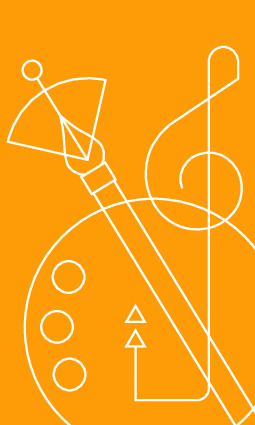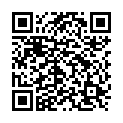|
|
|
| Module code: MAKM-120 |
|
|
4VU (4 hours per week) |
|
6 |
| Semester: 1 |
| Mandatory course: yes |
Language of instruction:
German |
Assessment:
Written exam (90 minutes)
[updated 24.09.2020]
|
Exam recurrence:
The information regarding exam recurrence is found within the exam policy of the study programme (ASPO).
|
MAKM-120 (P430-0017) Cultural Management, Master, ASPO 01.04.2020
, semester 1, mandatory course
|
60 class hours (= 45 clock hours) over a 15-week period.
The total student study time is 180 hours (equivalent to 6 ECTS credits).
There are therefore 135 hours available for class preparation and follow-up work and exam preparation.
|
Recommended prerequisites (modules):
None.
|
Recommended as prerequisite for:
|
Module coordinator:
Prof. Dr. Sybille Neumann |
Lecturer:
Dozierende des Studiengangs
[updated 28.05.2025]
|
Learning outcomes:
After successfully completing this module students will:
_ be able to analyze and discuss current developments in the economic and legal frameworks of cultural institutions and illustrate them with examples,
_ be able to select, explain and apply appropriate management methods to the respective economic and legal frameworks,
_ be able to explain the problems that cultural institutions have in connection with society, the market and the state and develop and present their own solutions to these problems,
_ be able to critically discuss theories, theses and findings in cultural management with regard to changing economic conditions and the connections mentioned above, and develop and present their own concepts for solving these problems,
_ be able to explain the legal framework, in particular the basics of German event law, and apply them to specific cases,
be able to apply legal texts independently, interpret each regulation and relate them to one another,
_ be able to analyze legal relationships between stakeholders in the cultural sector and evaluate them on the basis of current legal requirements and laws.
After successfully completing this module students will have acquired the following social skills:
_ Students will be able to develop and present their own opinions and argumentation,
_ They will be able to solve theoretical and practical questions in a team, organize themselves and solve conflicts (improvement of leadership skills, e.g. initiative, ability to work in a team, integration, delegation, conflict and assertiveness, self-confidence, willingness to take responsibility and risks),
_ Students will be able to communicate more efficiently and manage interaction with groups efficiently and effectively,
_ They will be able to work with the different, modern presentation techniques,
_ Students will be able to understand complex scientific and practical texts and apply them to practical problems.
After successfully completing the module, students will be able to demonstrate the following practical professional skills:
_ be able to explain and evaluate challenges in the everyday professional life of a cultural manager with its connections to society, the market and the state,
_ Students will be able to translate findings from current research into practical applications and independently develop solutions to challenges in everyday professional life.
[updated 24.09.2020]
|
Module content:
This course will present the cultural sector as part of its economic and legal environment.
The economic framework conditions will be illustrated on the basis of the interaction between the cultural sector and society, the state and the private sector market, and the effects of changes in the legal, political, economic, technological and social framework will be discussed. Current developments, as well as market and competitive parameters will be discussed in a regional, national and international context.
Current and in-depth topics will be discussed, such as the relationship between the state and culture, the economy and culture, as well as society and culture. Recent research findings and practical examples will be used to identify the challenges of specific situations. These include, for example, the use of public-private partnerships to finance culture, corporate cultural responsibility and the voluntary commitment of citizens as important stakeholders in the cultural sector. Together, students will identify, discuss and present solutions to individual challenges. In this context, the restrictions that must be considered when providing services in the cultural economy (service chain in the overall system of the cultural economy) will also be discussed.
The legal framework and the regulations of event law will be explained and discussed in depth on the basis of current findings from research and practice. These include for example:
_ Legal relationships between organizers, artists and visitors, contract law and service disruptions
_ General aspects of copyright and trademark law, general personal rights and the right to one´s own image
_ Copyright collectives and artists´ social security contributions
_ Insurance, liability and licensing aspects
Case studies will allow students to apply what they have learned and gain a realistic view of current professional practice in the cultural sector.
In addition, scientific texts and theoretical approaches to economic and legal frameworks will be developed and discussed.
[updated 24.09.2020]
|
Teaching methods/Media:
_ Seminaristic lecture course
_ Talks from professionals
_ Case studies
_ Role playing
_ Group work (independent concept development and presentation, as well as in certain cases, realization) _
Discussions with fellow students and third parties
_ Presentations and preparation of documentation/papers
On the basis of selected data material and case studies, students willlearn to develop concepts independently, implement and reflect on them.
[updated 24.09.2020]
|
Recommended or required reading:
Current literature lists will be made available to students at the beginning of the semester (exemplary references):
_ Aßländer, M. (2011): Grundlagen der Wirtschafts- und Unternehmensethik, Metropolis, Marburg
_ Banitopoulo, E. (2000): Art for Whose Sake? Modern Art Museums and Their Role in Transforming Societies: The Case of the Guggenheim Bilbao, in: Journal for Conservation and Museum Studies, No. 7, Nov. 2000
_ Blanke, B. et al. (Hrsg.): Handbuch zur Verwaltungsreform, latest edition, Springer, Wiesbaden.
_ Blankart, C. (2008): Öffentliche Finanzen in der Demokratie, 7. Aufl., Vahlen, Berlin
_ Bowdin, G., Allen, J., O´Toole, W., Harris, R., & Mc Donnell, I., Events Management, Great Britain: Elsevier, latest edition
_ Carroll, A. (2004): Managing Ethically with Global Stakeholders, in: The Academy of Management Executive, 18(2), 116 ff.
_ Crompton, J./Lee, S./ Schuster, T. (2001): A Guide for Undertaking Economic Impact Studies: The Springfest Example, in: Journal of Travel Research 2006, Vol. 40, No. 79, p. 80.
_ Frohne, J. et al. (2015): Kultursponsoring, Springer, Wiesbaden
_ Gerlach-March, R. (2011): Gutes Theater. Theaterfinanzierung und Theaterangebot in Großbritannien und Deutschland im Vergleich, Springer, Wiesbaden
_ Gerlach-March, R. (2012): Kulturfinanzierung, Springer, Wiesbaden
_ Gottschalk, I. (2016): Kulturökonomik, 2. Aufl., Springer, Wiesbaden
_ Hausmann, A. (2011): Kunst- und Kulturmanagement, Springer, Wiesbaden
_ Klein, A. (2011): Der exzellente Kulturbetrieb, Springer
_ Lange, B. et al. (2016): Kooperationen zwischen Kreativwirtschaft und Mittelstand, Springer, Wiesbaden
_ Letzner, V., Tourismusökonomie _ Volkswirtschaftliche Aspekte rund ums Reisen, Opaschowski, H.W.: Deutschland 2020. Wie wir morgen leben _ Prognosen der Wissenschaft. Wiesbaden 2006
_ Lewinski-Reuter, V. (2008): Bürgerschaftliches Engagement _ Bürger als Akteure der kommunalen Kultur und Ausblicke für das Kulturmanagement, in: Lewinski-Reuter, V./Lüddemann, S. (Hrsg.): Kulturmanagement der Zukunft, Springer, Wiesbaden, pp. 137-163
_ Ritz, A. (2003): Public Private Partnership, in: Eichhorn, P. (Hrsg.): Verwaltungslexikon,
3. Aufl., Baden-Baden: Nomos, p. 858
_ Schulze, G.: Die Erlebnisgesellschaft, Kultursoziologie der Gegenwart Frankfurt 1995
_ Seitanidi, M. M. & Crane, A. (2009): Implementing CSR through partnerships: Understanding the selection, design and institutionalization of nonprofit-business partnerships, Journal of Business Ethics, 85(2), 413-429.
_ Steinecke, A. (Hrsg.), Erlebnis- und Konsumwelten, Oldenbourg, München, 2000
_ Steinkellner, V. (2015): CSR und Kultur, Springer, Wiesbaden
_ Zimmer, A. (1996): Museen zwischen Markt und Staat, in: Zimmer, A. (Hrsg.): Das Museum als Nonprofit Organisation. Management und Marketing, Frankfurt am Main, Campus, pp. 9-22;
_ Zimmer, A. & Toepler, S. (1999): The Subsidized Muse: Government and the Arts in Western Europe and the United States, in: Journal of Cultural Economics, Vol. 23, No. 1- 2, pp. 33-49
_ Waddock, S. A. (1988): Building Successful Partnerships, Sloan Management Review, 29(4), 17-23.
[updated 24.09.2020]
|


